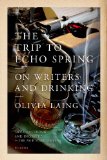Summary | Excerpt | Reviews | Beyond the Book | Readalikes | Genres & Themes | Author Bio

Critics' Opinion:
Readers' Opinion:
First Published:
Dec 2013, 352 pages
Paperback:
Oct 2014, 352 pages
 Book Reviewed by:
Book Reviewed by:
Stacey Brownlie
Buy This Book
From the Hallorans Neddy travels to their daughter’s house, hoping to beg a glass of whiskey. Helen greets him warmly enough, but her house is dry and has been for three years. Bewildered, chilled to the bone, he heaves his way across the pool and cuts through the fields to the Biswangers. From the roar of voices it’s evident a party is in full swing. He wanders in, still almost naked. But now, mysteriously, it’s twilight, and the water on the pool has ‘a wintry gleam’. Mrs. Biswanger, who has angled for Neddy as a guest for years, has apparently suffered some change of heart. She greets him rudely, and when his back is turned can be heard saying: ‘They went for broke overnight – nothing but income – and he showed up drunk one Sunday and asked us to loan him five thousand dollars.’ Then the bartender rebuffs him, confirming his sneaking sense that some social loss of grace has occurred, and been remembered and recorded.
Struggling on, he passes next through the garden of a former mistress, though he can’t remember precisely when or in what mood he broke it off. She isn’t wholly pleased to see him either, and is likewise fretful about the possibility that he wants money. Leaving, he catches on the cooling air an autumnal smell, not quite placeable but ‘strong as gas’. Marigolds? Chrysanthemums? Looking up, he sees the winter constellations have taken up their stations in the night sky. Flooded with uncertainty, he begins, for the first time in his life, to cry.
There are only two more pools to go. He flails and gasps through the final laps before walking in damp trunks up the drive to his own house. But now the hints about a downturn in his fortunes begin to clarify, for the lights are out, the doors are locked, the rooms are empty and nobody, it is clear, has lived here for a long while.
* * *
‘The Swimmer’ had come into my mind because I was plummeting through the sky above New York, where the land breaks apart in a clutter of islands and marshes. There are some subjects one can’t address at home, and so at the beginning of the year I’d left England for America, a country almost entirely unknown to me. I wanted time to think, and what I wanted to think about was alcohol. I’d spent the winter upcountry, in a cottage in New Hampshire, and now it was spring and I was moving south.
Last time I’d passed over here the earth was white all the way up to the Arctic, and the Connecticut River turned through dark bars of forest frozen the metallic blue-grey of the barrel of a gun. Now the ice had melted, and the whole landscape was ablaze. It reminded me of Cheever’s line – that to live ‘in a world so generously supplied with water seemed like a clemency, a beneficence’.
‘The Swimmer’, which I would judge among the finest stories ever written, catches in its strange compressions the full arc of an alcoholic’s life and it was that same dark trajectory I wanted to pursue. I wanted to know what made a person drink and what it did to them. More specifically I wanted to know why writers drink, and what effect this stew of spirits has had upon the body of literature itself.
John Cheever and Raymond Carver are hardly the only writers whose lives were made desolate by alcohol. Alongside them come Ernest Hemingway, William Faulkner, Tennessee Williams, Jean Rhys, Patricia Highsmith, Truman Capote, Dylan Thomas, Marguerite Duras, Hart Crane, John Berryman, Jack London, Elizabeth Bishop, Raymond Chandler – the list staggers on. As Lewis Hyde observes in his essay ‘Alcohol and Poetry’, ‘four of the six Americans who have won the Nobel Prize for literature were alcoholic. About half of our alcoholic writers eventually killed themselves.’
Alcoholism is not a simple condition to define. According to the American Society of Addiction Medicine, its essential features are ‘impaired control over drinking, preoccupation with the drug alcohol, use of alcohol despite adverse consequences, and distortions in thinking, most notably denial’. In 1980, The Diagnostic and Statistical Manual of Mental Disorders dropped the term ‘alcoholism’ entirely, replacing it with two interrelated disorders: alcohol abuse (defined as ‘repeated use despite recurrent adverse consequences’) and alcohol dependence (defined as ‘alcohol abuse combined with tolerance, withdrawal and an uncontrollable drive to drink’).
Excerpted from The Trip to Echo Spring by Olivia Laing. Copyright © 2013 by Olivia Laing. Excerpted by permission of Picador. All rights reserved. No part of this excerpt may be reproduced or reprinted without permission in writing from the publisher.





The Flower Sisters
by Michelle Collins Anderson
From the new Fannie Flagg of the Ozarks, a richly-woven story of family, forgiveness, and reinvention.

The House on Biscayne Bay
by Chanel Cleeton
As death stalks a gothic mansion in Miami, the lives of two women intertwine as the past and present collide.

The Funeral Cryer by Wenyan Lu
Debut novelist Wenyan Lu brings us this witty yet profound story about one woman's midlife reawakening in contemporary rural China.
Your guide toexceptional books
BookBrowse seeks out and recommends the best in contemporary fiction and nonfiction—books that not only engage and entertain but also deepen our understanding of ourselves and the world around us.